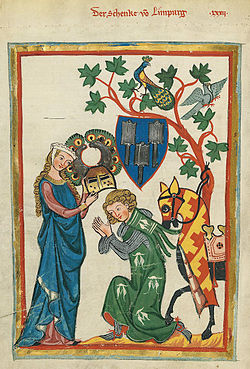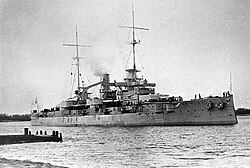Portal:History
The History Portal
History is the systematic study of the past, focusing primarily on the human past. As an academic discipline, it analyses and interprets evidence to construct narratives about what happened and explain why it happened. Some theorists categorize history as a social science, while others see it as part of the humanities or consider it a hybrid discipline. Similar debates surround the purpose of history—for example, whether its main aim is theoretical, to uncover the truth, or practical, to learn lessons from the past. In a more general sense, the term history refers not to an academic field but to the past itself, times in the past, or to individual texts about the past.
Historical research relies on primary and secondary sources to reconstruct past events and validate interpretations. Source criticism is used to evaluate these sources, assessing their authenticity, content, and reliability. Historians strive to integrate the perspectives of several sources to develop a coherent narrative. Different schools of thought, such as positivism, the Annales school, Marxism, and postmodernism, have distinct methodological approaches.
History is a broad discipline encompassing many branches. Some focus on specific time periods, such as ancient history, while others concentrate on particular geographic regions, such as the history of Africa. Thematic categorizations include political history, military history, social history, and economic history. Branches associated with specific research methods and sources include quantitative history, comparative history, and oral history.
History emerged as a field of inquiry in antiquity to replace myth-infused narratives, with influential early traditions originating in Greece, China, and later in the Islamic world. Historical writing evolved throughout the ages and became increasingly professional, particularly during the 19th century, when a rigorous methodology and various academic institutions were established. History is related to many fields, including historiography, philosophy, education, and politics. (Full article...)
Featured picture
Did you know (auto generated)

- ... that the developers of The Pale Beyond were inspired by stories from historical Antarctic and Arctic expeditions?
- ... that when Wilson Starbuck's play Sea Dogs was staged in 1939 it "contained some of the foulest language heard on Broadway" at that point in history?
- ... that the history of philosophy in India is characterized by its combined interest in the nature of reality, the ways of arriving at knowledge, and the spiritual question of how to reach enlightenment?
- ... that pianist and composer Josef Weiss created the first film score in the history of German cinema?
- ... that at over 400 pounds (180 kg), Desmond Watson is one of the largest players in NCAA Division I football history?
- ... that Montenegrin historian Radoje Pajović refused to engage in historical revisionism to rehabilitate Chetniks who collaborated with the Axis powers?
Jogaila (Lithuanian: [jɔˈɡâːɪɫɐ] ⓘ; c. 1352/1362 – 1 June 1434), later Władysław II Jagiełło (Polish: [vwaˈdɨswaf jaˈɡʲɛwwɔ] ⓘ), was Grand Duke of Lithuania beginning in 1377 and starting in 1386, becoming King of Poland as well. As Grand Duke, he ruled Lithuania from 1377 to 1381 and from 1382 to 1401, at which time he became the Supreme Duke of Lithuania in exchange for naming his cousin Vytautas as the new Grand Duke. Władysław II initially served as King of Poland alongside his wife Jadwiga until her death in 1399, and then the sole ruler until his own death in 1434.
Raised a Lithuanian polytheist, he converted to Catholicism in 1386 and baptized as Ladislaus (Polish: Władysław) in Kraków, married the young Queen Jadwiga, and was crowned King of Poland as Władysław II Jagiełło. In 1387, he converted Lithuania to Catholicism. His reign in Poland started in 1399, upon the death of Queen Jadwiga, lasted a further thirty-five years, and laid the foundation for the centuries-long Polish–Lithuanian union. He was a member of the Jagiellonian dynasty in Poland that bears his name and was previously also known as the Gediminid dynasty in the Grand Duchy of Lithuania. The dynasty ruled both states until 1572, and became one of the most influential dynasties in late medieval and early modern Europe. (Full article...)
On this day
April 30: Yom HaZikaron in Israel (2025)
- 311 – The Diocletianic Persecution of Christians officially ended in the eastern Roman Empire.
- 1943 – Second World War: The Royal Navy submarine HMS Seraph began Operation Mincemeat to deceive Germany about the upcoming invasion of Sicily.
- 1963 – A refusal by the Bristol Omnibus Company and the Transport and General Workers' Union to permit the employment of black bus crews led to a bus boycott in Bristol, England.
- 1975 – American forces completed a helicopter evacuation (aircraft and evacuees pictured) of U.S. citizens, South Vietnamese civilians and others from Saigon, just before North Vietnamese troops captured the city and ended the Vietnam War.
- 2021 – A crowd crush killed 45 people during the annual pilgrimage to the tomb of Rabbi Shimon bar Yochai in Israel.
- Marie of the Incarnation (d. 1672)
- Emily Stowe (d. 1903)
- Kirsten Dunst (b. 1982)
Selected quote
Time's glory is to command contending kings,
To unmask falsehood, and bring truth to light.— William Shakespeare, playwright
Related portals
More Did you know...
- ... that the underground Fortress of Mimoyecques (pictured) was built by Nazi Germany to bombard London with 10 shells a minute using the V-3 supergun?
- ... that Howard P. Perry was the first African American recruit in the United States Marine Corps?
- ... that the Chester city walls form the most complete circuit of Roman and medieval defensive town walls in Britain?
- ... that China's first female director was adopted by the first Premier of the People's Republic of China?
- ... that the Medieval Merchant's House in Southampton was being used as a brothel when bomb damage during the Blitz revealed the building's important medieval architecture?
- ... that the Sumerian "river of paradise", the Hubur, derived partly from real geography before becoming a demonic fantasy?
- ... that Bill Foley's photograph "The Last Smile" shows Anwar Sadat only moments before his assassination?
- ... that the 1911 Sarez earthquake triggered a huge landslide, forming the tallest dam in the world?
Topics
Categories

History • By period • By region • By topic • By ethnic group • Historiography • Archaeology • Books • Maps • Images • Magazines • Organizations • Fictional • Museums • Pseudohistory • Stubs • Timelines • Chronology • People • Wikipedia historians
WikiProjects
![]() WikiProject History •
Ancient Near East • Australian History • Classical Greece and Rome • Dacia • Former countries • History of Canada • Chinese history • European history • Heraldry and vexillology • Indian history • Jewish history • Medieval Scotland • Mesoamerica • Military history • Middle Ages • History of Science
WikiProject History •
Ancient Near East • Australian History • Classical Greece and Rome • Dacia • Former countries • History of Canada • Chinese history • European history • Heraldry and vexillology • Indian history • Jewish history • Medieval Scotland • Mesoamerica • Military history • Middle Ages • History of Science
WikiProject Time • Days of the Year • Years
WikiProject Biography • Composers • Political figures • Saints • United States Presidents
Things you can do
 |
Here are some tasks awaiting attention:
|
Associated Wikimedia
The following Wikimedia Foundation sister projects provide more on this subject:
-
Commons
Free media repository -
Wikibooks
Free textbooks and manuals -
Wikidata
Free knowledge base -
Wikinews
Free-content news -
Wikiquote
Collection of quotations -
Wikisource
Free-content library -
Wikiversity
Free learning tools -
Wiktionary
Dictionary and thesaurus





















































